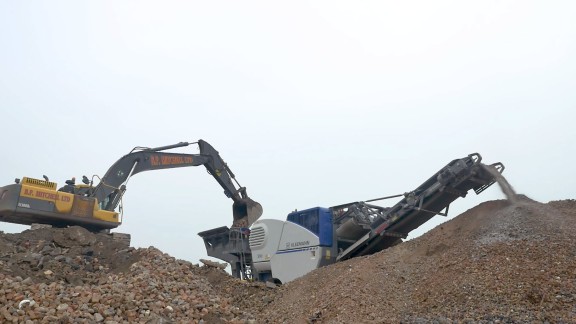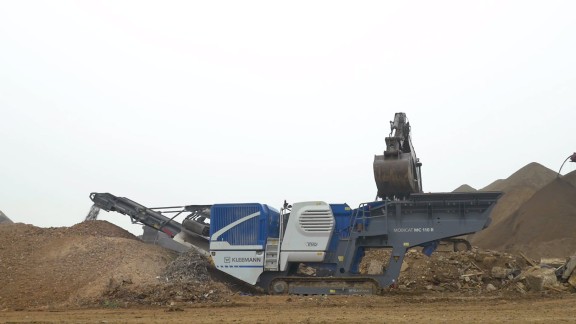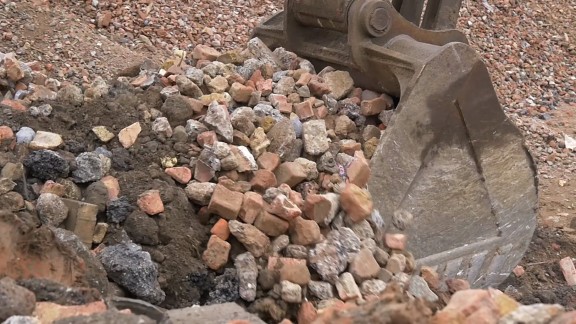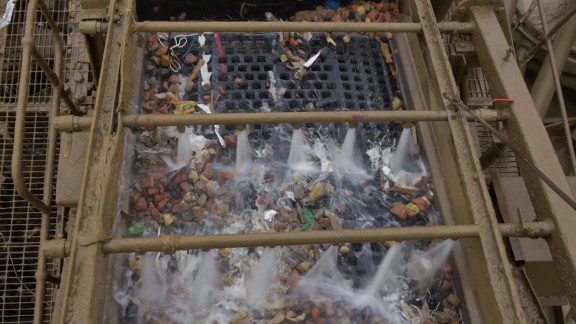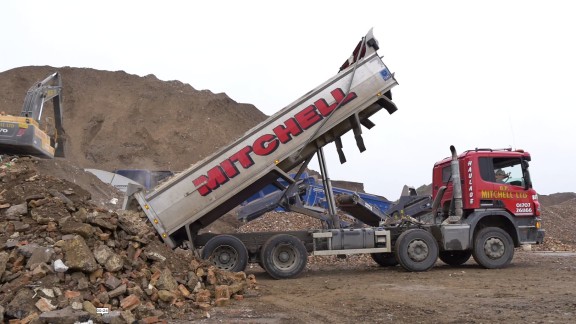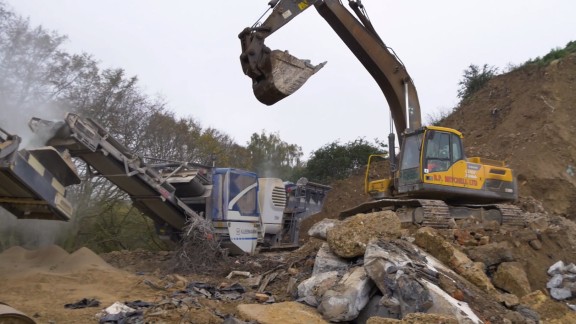We never regretted the decision!
Five Kleemann jaw crushers process rubble in a recycling centre with washing plant
With the counties Hertfordshire, Bedfordshire and Essex, the catchment area of B.P. Mitchell north of London is rather extensive. The various locations with associated transport fleets are also correspondingly large. In the recycling centre west of Hertford, five MC 110 R EVO jaw crushers from Kleemann are used to prepare rubble for the stationary washing plant.
Washing plant for higher selling price
In minute cycles, the red tippers reach and leave the recycling centre on the B195 in the north of London. Here, residual construction materials are prepared for recycling, which would not always be possible on site in the densely built-up areas. Most of the pre-crushed material, which contains a conspicuously high share of red bricks typical of English building, is additionally prepared in a washing plant. This increases the resale value of the material many times over. Prior to this, several Mobicat MC 110 R EVO jaw crushers crush the rubble down to a size of 0-40 mm, which, in part, is also presorted with a Mobiscreen MS 15 Z.
Advantage of jaw crushers over impact crushers
The decision in favour of jaw crusher was not coincidental. It is precisely the different intermediate steps that would hardly be possible with an impact crusher because it would easily pulverise the relatively soft brick material. In this area, the Mobicat MC 110 R EVO offers convenient gap setting via touch panel for rapid adaptation of the application to the required feed size of the washing plant.
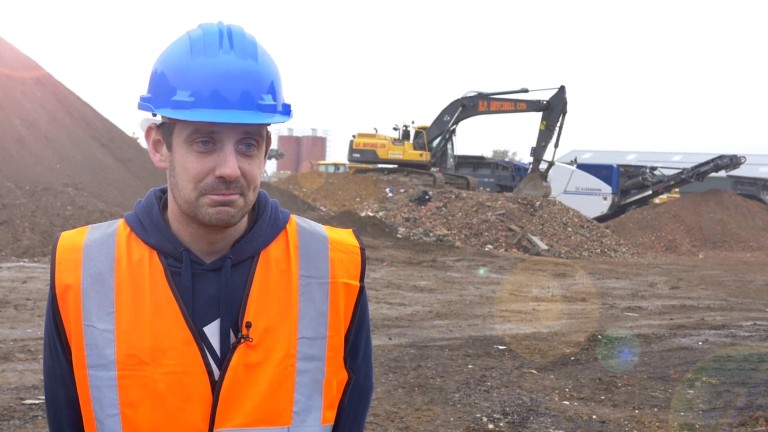
Richard Salmons, Recycling Center Foreman
Low consumption thanks to diesel-directdrive
What convinced B.P. Mitchell most of all about the Kleemann crushers, apart from the high plant performance, was the low noise level and efficient consumption thanks to the innovative drive concept with crusher direct drive and electric drives of the other components. This provides enormous power reserves combined with the best possible consumption values.
